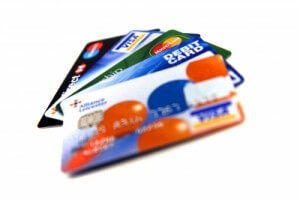If you’re creating a plan to get out of debt, you may want to consider consolidation of your loans. Why take out yet another loan? The answer, of course, depends on your personal financial situation. But for many people in debt, consolidation offers them an easier way to keep track of what they owe and pay it down. In addition, a debt consolidation loan may have a lower rate of interest than the various loans that you now owe.

What is debt consolidation?
Debt consolidation is simply taking out a single loan large enough to pay off all of your smaller loans. Most people use debt consolidation as a way to lump together their credit card balances, utility bills, and student loans, amongst other types of debt. But not all of your debt can be covered this way; most times, your mortgage can’t be included in your debt consolidation loan.
Which debt consolidation method is best for me?
There are several ways to consolidate your debt. The method you choose will depend on your specific financial goals. However, the average consumer may be able to choose between:
- A credit card balance transfer. Many consumers opt to open a new credit card with a promotional interest-free period so that they can then transfer their debts to that card. This option works best if your total debt amount is within the credit limit. If you are able to pay the debt before the promotional period ends, this can be one of the most cost-effective ways to handle debt. But beware; after the interest-free period ends, you may be stuck with a higher rate than you currently have.
- A debt consolidation loan. This is more specifically designed for the purpose of paying off debt. If you choose this method, you could lower the total amount of interest you pay on your debts as well as free up some monthly income that you need for necessities. However, it is important to do your research and make sure you are getting a loan for the lowest interest rate available to you. And don’t forget to make extra payments when you can to chip away at the loan balance!
- A home equity loan. If you are a homeowner, you can actually tap into the equity that you have in that home to receive a line of credit that you can then use to pay off other debts. The primary advantage of this method is that mortgages usually have lower interest rates than other kinds of loans, and you can find the best ones with a top mortgage calculator.
No matter which method you choose, consolidation can be an effective tool for getting your back on the path to financial success. Remember, researching your options and tailoring a plan to fit your credit history is the best way to predict your financial future.
Want to learn more about how to reduce your debt?
